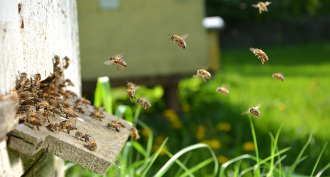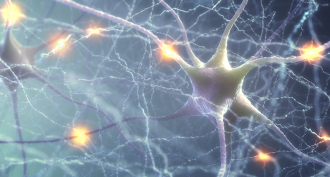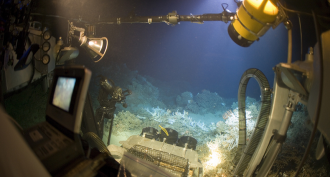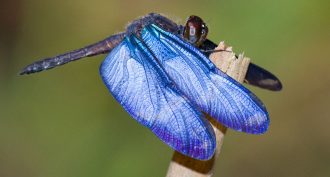Life
-
 Animals
AnimalsScientists Say: Dire wolf
Dire wolves are an extinct species of wolf that roamed North America from about 300,000 to 12,000 years ago.
-
 Brain
BrainBrain’s immune system can play role in weight gain
Weight isn’t just calories in, calories out. When mice eat a fatty diet, immune cells in their brains become inflamed. That makes the animals gain more weight.
-
 Animals
AnimalsThese sharks get help swallowing from their shoulders
Some sharks suck in food by snapping open their jaws. But to gulp it all the way down, they’ve got to give their shoulders a workout.
-
 Animals
AnimalsWhat do animals do during a solar eclipse?
A citizen-science experiment used the Great American Eclipse of 2017 to gather the largest dataset ever of animal responses to a sun-block.
-
 Brain
BrainMany U.S. football players had brain disease, data show
The brains of more than 200 former football players were donated to science upon their deaths. Signs of severe brain trauma showed up in the vast majority.
-
 Brain
BrainMild brain injury can cause bead-like swellings in brain cells
Mild head bumps cause temporary swellings — like beads in a necklace — within brain cells. If cells get enough time to heal, those “beads” will disappear.
-
 Animals
AnimalsGiant Antarctic sea spiders breathe really strangely
Sea spiders have many bizarre body systems. Scientists have now discovered that they breathe and circulate oxygen in a way never seen before.
By Ilima Loomis -
 Life
LifeScientists Say: Histology
When scientists study the parts of an animal or plant, they are studying anatomy. When they need a microscope to see the details of that anatomy, they are studying histology.
-
 Oceans
OceansCool Jobs: Science deep beneath the waves
These scientists probe the sea’s depths, its strange inhabitants, the movement of water and how life evolves in extremes.
By Ilima Loomis -
 Animals
AnimalsThis tiny animal is apocalypse-proof
Microscopic animals called water bears can survive nearly any kind of apocalypse, from asteroids and nuclear war to exploding stars.
-
 Animals
AnimalsHumpbacks flap their flippers like underwater birds
Surprising new video shows humpback whales flapping their front flippers to move their massive bodies toward their prey.
-
 Animals
AnimalsCould a dragonfly’s wings be alive — and breathing?
Highly magnified image showing what looks like breathing tubes suggests the morpho dragonfly’s wings may be unexpectedly alive.
By Susan Milius